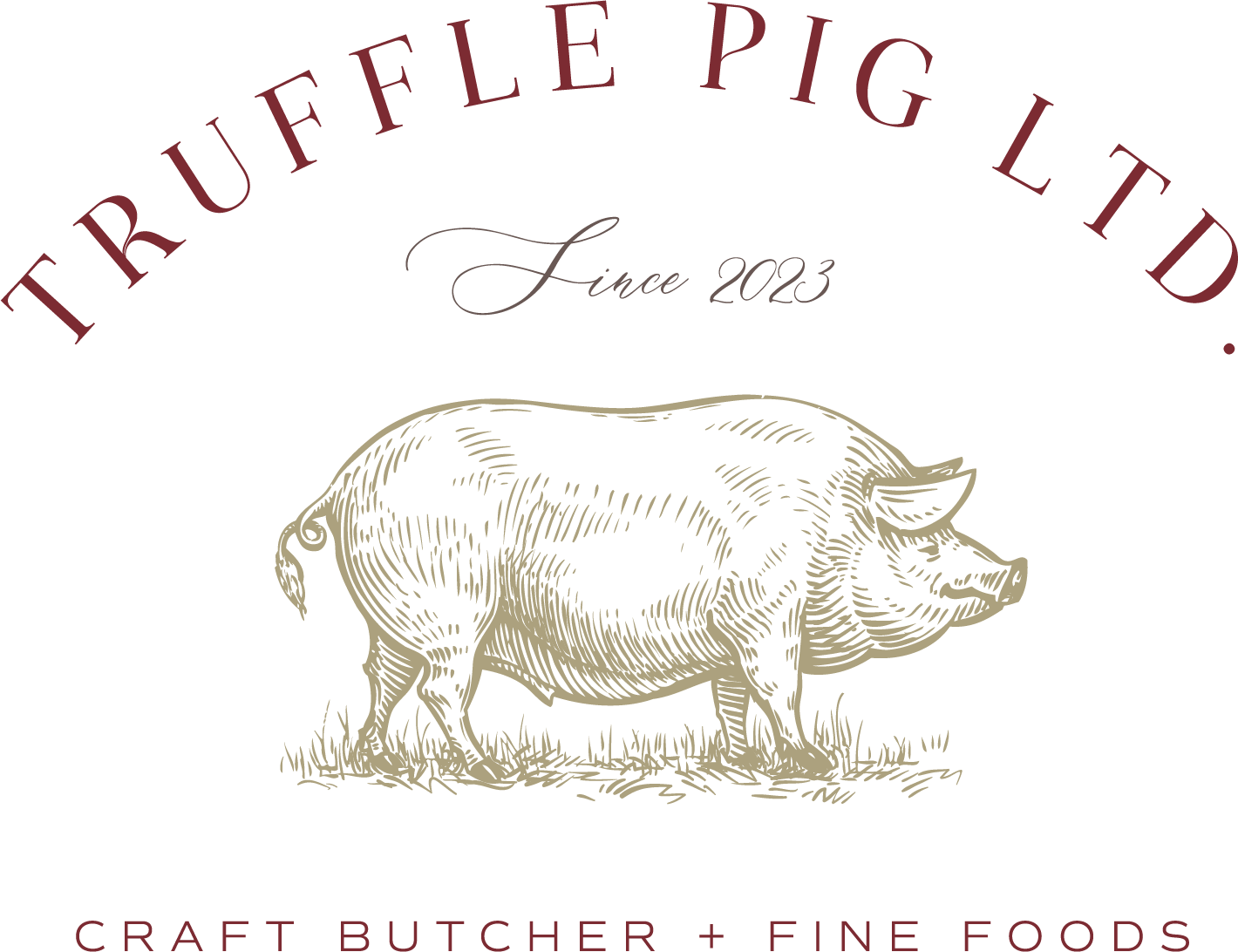Berkshire Pork

The Legacy of Berkshire Pigs: A Heritage Breed with Rich Flavor
We want to start by saying Kurobuta Pork is Berkshire Pork. Kurobuta is Japanese for "Black Pig." Many retailers sell Berkshire as Kurobuta, but for the sake of calling it what it is, we will call it Berkshire.
The Berkshire pig, one of the oldest identifiable breeds of swine, has a storied history that dates back centuries. This breed made its way to the United States in the early 1800s, where it significantly improved the existing hog population when crossbred with local stock. However, concerns about preserving the breed's purity led to the establishment of the American Berkshire Association (ABA) in 1875. As the world’s first swine registry, the ABA gained widespread support from breeders in both the U.S. and England.
To ensure the integrity of the Berkshire lineage, it was agreed that only pigs directly descended from English herds or traceable to them would be registered. The first boar entered into the ABA registry, fittingly named Ace of Spades, was bred by none other than Queen Victoria. Today, many Berkshire pigs can trace their ancestry back to these original registered animals.
Why Berkshire Pork Stands Out
Berkshire pork is unlike the pork commonly found in grocery stores today. Modern lean hogs have been bred to reduce fat, resulting in meat that is often compared to chicken in texture and flavor. In contrast, Berkshire pork boasts a rich, succulent taste and an unmistakably deep "porky" flavor. Its vibrant red hue, natural sweetness, and abundant intramuscular marbling set it apart, making the meat exceptionally tender and juicy.
This is pork as it was meant to be—full of flavor and texture. Once you experience the quality of Berkshire pork, you may find it difficult to return to conventional pork, often dubbed "the other white meat."
A Growing Demand for Heritage Breeds
The resurgence of interest in heritage breeds and traditional foods has brought Berkshire pigs back into the spotlight. Farmers are raising Berkshires in small-scale operations, often combining them with other heritage breeds to enhance hardiness and flavor. These pigs are typically reared in natural, pasture-based environments, adhering to traditional farming practices that prioritize animal welfare.
Chefs across the country have embraced Berkshire pork for its superior quality and are willing to pay a premium for sustainably and naturally raised meat. This demand has encouraged more farmers to invest in heritage breeds like the Berkshire, helping to preserve their legacy and bring unparalleled pork to the market.
Experience the Flavor of True Berkshire Pork
Berkshire pork is a testament to the benefits of preserving heritage breeds and traditional farming methods. With its exceptional taste, tenderness, and quality, it’s no wonder this pork has become a favorite among culinary professionals and food enthusiasts alike.
Discover the unmatched flavor of Berkshire pork and savor the difference for yourself.


